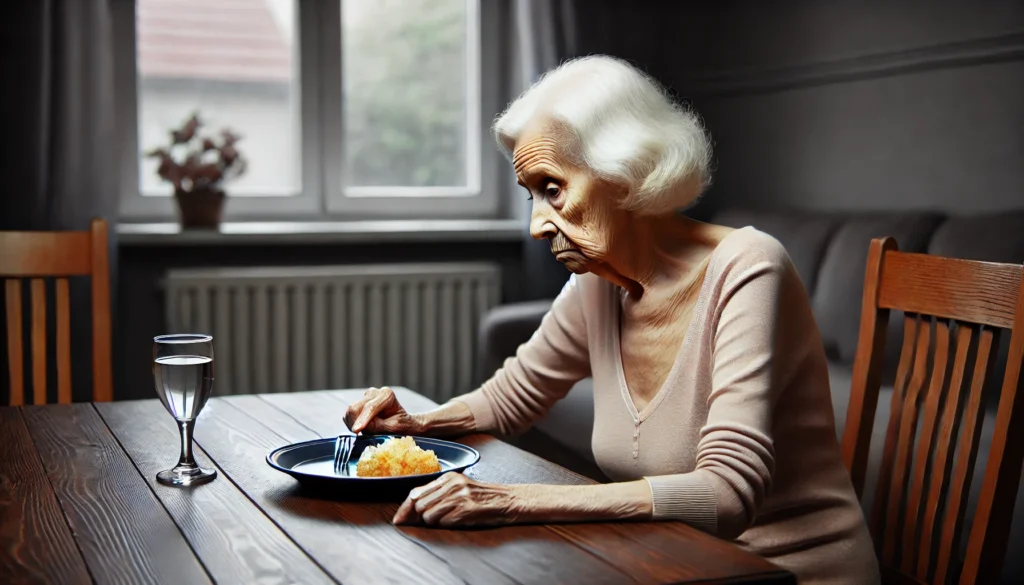Aging is a natural and inevitable process, but understanding when the changes are indicative of a decline is key to safeguarding the health of our elderly loved ones. Elderly decline can manifest in multiple areas: physical, cognitive, emotional, and social.
You may also like: Tips to Improve Low Average Memory Performance
The Biological Process of Aging
Aging is a complex biological process that involves gradual changes in cell structure and function. These changes lead to a decline in physical capabilities and can affect mental processes. Understanding the biological aspects of aging can help differentiate between normal aging and pathological decline.
Differentiating Normal Aging from Decline
While some memory loss or joint stiffness can be normal as we age, significant changes in mobility, cognition, or mood may indicate a decline. It is crucial to understand these differences to provide appropriate care and interventions. Normal aging involves gradual change, while decline often presents as a noticeable shift in abilities or health.
The Impact of Lifestyle Factors
Lifestyle choices made throughout life significantly impact the aging process. Factors such as diet, exercise, and social engagement can either mitigate or exacerbate the signs of decline. Encouraging healthy habits can play a role in reducing the risk of deterioration and promoting overall well-being.
Physical Signs of Deterioration
Physical deterioration in the elderly can manifest in various ways, affecting their independence and quality of life. Recognizing these signs early can help in taking preventive measures and seeking appropriate interventions.
Mobility Challenges
A noticeable decline in an elderly person’s mobility can be an early sign of physical deterioration. This could manifest as difficulty in walking, a slower gait, trouble getting up from a seated position, or challenges in maintaining balance. These changes might be due to muscle weakness, joint pain, or neurological issues, and they can significantly affect an individual’s independence and quality of life.
Causes and Consequences of Mobility Issues
Mobility challenges may arise due to various health conditions such as arthritis, osteoporosis, or Parkinson’s disease. These conditions not only limit movement but also increase the risk of falls and injuries. Understanding the underlying causes can guide interventions and improve safety.
Assessing and Addressing Mobility Decline
Assessment of mobility decline involves observing gait changes and balance issues. Early intervention may include physical therapy, assistive devices, and exercises to strengthen muscles and improve balance. These measures can help maintain independence and reduce fall risks.
The Role of Technology in Mobility Assistance
Advancements in technology have introduced various tools and devices to assist with mobility. From smart walkers to home modifications, technology can enhance safety and independence for those experiencing mobility decline. Exploring these options can significantly impact the quality of life.
Unexplained Weight Loss
While weight fluctuation can be common, significant and unexplained weight loss in the elderly is a red flag. It could indicate underlying issues such as malnutrition, depression, or chronic illness. It’s essential to monitor and address any drastic changes in weight by consulting healthcare professionals.
Potential Health Implications
Unexplained weight loss can lead to weakened immunity, decreased muscle strength, and increased susceptibility to infections. It may also signal serious health issues such as cancer or gastrointestinal disorders. Early detection and treatment are crucial in preventing further health deterioration.

Nutritional Interventions
Addressing unexplained weight loss often involves nutritional assessment and intervention. A diet rich in essential nutrients and calories can help counteract weight loss. Consulting a dietitian can provide tailored dietary plans to meet individual needs and promote health.
Psychological Factors and Weight Loss
Mental health issues such as depression or anxiety can contribute to weight loss in the elderly. Emotional support, counseling, and, if necessary, medical treatment can help address these psychological factors and improve overall health outcomes.
Cognitive Decline Indicators
Cognitive decline is a significant concern in aging populations, affecting memory, reasoning, and decision-making. Early recognition of cognitive issues is vital for managing and potentially slowing down the progression.
Memory Loss
One of the most recognizable signs of cognitive decline is memory loss. Although occasional forgetfulness is normal with aging, persistent and worsening memory problems that interfere with daily life can be indicative of conditions like Alzheimer’s disease or other forms of dementia.
Differentiating Between Normal and Problematic Memory Loss
While it’s normal to occasionally forget names or appointments, consistent forgetfulness that disrupts daily life may signal a problem. Understanding the difference is crucial in identifying potential cognitive decline and seeking early intervention.
Strategies to Support Memory
Memory support strategies can include cognitive exercises, memory aids, and creating a structured environment. These approaches can help maintain memory function and improve daily living for those experiencing memory challenges.
The Role of Professional Assessment
Professional cognitive assessments can provide a comprehensive understanding of memory issues. Early diagnosis allows for timely interventions, which can slow the progression of cognitive decline and improve quality of life.
Difficulty in Following Directions
An elderly individual who struggles to follow directions, whether written or verbal, might be experiencing cognitive decline. This difficulty can affect their ability to manage daily tasks and personal care, impacting their overall safety and independence.
Identifying Challenges in Comprehension
Difficulty in following directions may stem from issues in comprehension or attention. Identifying these challenges is essential in providing appropriate support and accommodations to enhance understanding and task management.
Techniques to Improve Direction Following
Using clear, simple instructions and visual aids can help individuals struggling with direction-following. Repetition and patience are key in reinforcing understanding and encouraging successful task completion.
The Importance of Routine and Structure
Establishing a consistent routine can aid those with cognitive challenges. Familiarity and structure reduce confusion and anxiety, promoting a sense of independence and control over daily activities.
Emotional and Behavioral Changes
Emotional well-being is closely linked to overall health. Recognizing changes in mood and behavior is essential in identifying emotional decline and providing appropriate support.
Mood Swings and Depression
Emotional well-being is an integral part of overall health. Sudden mood swings, increased irritability, or prolonged periods of sadness might indicate emotional decline. Depression is not a normal part of aging, and recognizing these signs early can lead to effective interventions.
Understanding Emotional Changes
Emotional changes may arise from various factors, including physical health issues, medication side effects, or loss of loved ones. Understanding these influences can guide interventions and support emotional health.
Intervention Strategies for Mood Disorders
Effective interventions for mood disorders include therapy, medication, and lifestyle changes. Encouraging social interaction, physical activity, and mental stimulation can also enhance mood and emotional well-being.
The Impact of Emotional Health on Physical Health
Emotional health significantly impacts physical health, with conditions like depression increasing the risk of chronic diseases. Addressing emotional issues is vital in promoting overall health and reducing the risk of further decline.
Withdrawal from Social Activities
A decline in social engagement can often accompany emotional changes. If an elderly person starts withdrawing from social activities they once enjoyed, it may signal emotional distress or a lack of energy or interest due to other health issues.
Identifying Causes of Social Withdrawal
Social withdrawal may result from physical limitations, cognitive decline, or emotional distress. Identifying the root cause is essential in addressing the issue and promoting re-engagement in social activities.
Encouraging Social Interaction
Encouraging participation in social activities can enhance emotional well-being and reduce feelings of isolation. Group activities, clubs, and community events provide opportunities for interaction and connection.
Technology’s Role in Social Connectivity
Technology offers new avenues for social interaction, especially for those with mobility issues. Video calls, social media, and online groups can facilitate connections and reduce feelings of loneliness.
How to Tell if an Elderly Person is Deteriorating
Identifying whether an elderly person is deteriorating involves observing a combination of the signs mentioned above. The key is to recognize patterns and changes in behavior, health, and habits. Here are some practical steps:
Regular Health Assessments
Frequent medical check-ups can help in early detection of health issues. Healthcare professionals can provide a comprehensive assessment of physical and cognitive health, aiding in early intervention.
The Importance of Routine Check-Ups
Routine health assessments are crucial in monitoring changes in health and identifying potential issues. Regular visits to healthcare providers ensure timely interventions and ongoing management of health conditions.
Comprehensive Health Screening
Comprehensive screenings include physical, cognitive, and emotional assessments. These evaluations provide a holistic view of an individual’s health, guiding personalized care plans and interventions.
Collaborating with Healthcare Providers
Building a strong relationship with healthcare providers is essential in managing elderly health. Open communication and collaboration ensure coordinated care and optimal health outcomes.
Open Communication
Maintaining open lines of communication with elderly individuals about their health and feelings can be incredibly beneficial. Encourage them to share any concerns or discomforts they may be experiencing.
Building Trust and Rapport
Trust and rapport are fundamental in encouraging open communication. Listening actively and expressing empathy fosters a safe environment for sharing thoughts and concerns.
Encouraging Expression of Concerns
Encouraging the expression of health concerns can lead to early detection of issues. Providing a supportive space for discussion can empower individuals to voice their needs and preferences.
Addressing Communication Barriers
Communication barriers, such as hearing loss or cognitive decline, can hinder effective interaction. Utilizing clear language, visual aids, and patience can enhance communication and understanding.
Monitoring Daily Activities
Keep an eye on their ability to perform daily activities such as cooking, cleaning, and personal hygiene. A noticeable decline in their ability to manage these tasks independently may signal a need for additional support or intervention.
Identifying Changes in Daily Functioning
Monitoring changes in daily functioning helps identify potential declines in health. Difficulty in managing daily tasks may indicate physical, cognitive, or emotional challenges that require attention.
Supporting Daily Living
Supporting daily activities may involve providing assistance, adaptive tools, or environmental modifications. Encouraging independence while offering support enhances well-being and quality of life.
The Role of Caregiving
Caregivers play a vital role in monitoring and supporting daily activities. Understanding the challenges and providing compassionate care can significantly impact the health and happiness of elderly individuals.

Historical Context and Future Implications
Throughout history, the care and understanding of elderly decline have evolved significantly. In earlier times, the aging population often lacked the resources and knowledge necessary to address their unique health challenges. Today, advances in medicine and technology have provided us with tools to better understand and manage aging-related issues.
Historical Perspectives on Aging
Historically, aging was often associated with wisdom and respect, but also with frailty and dependency. Societal attitudes towards aging have shifted, influencing the care and resources available to the elderly.
Modern Advances in Elderly Care
Modern medicine and technology have transformed elderly care, offering new solutions for managing health issues. From telemedicine to home health monitoring, these advances improve accessibility and quality of care.
Future Trends and Innovations
Looking forward, the future of elderly care holds promising innovations. From smart home technologies designed to assist with daily tasks to groundbreaking research in gerontology, the focus is on improving the quality of life for the aging population. Understanding the early signs of decline will continue to be a crucial element in crafting effective care strategies.
Practical Advice for Caregivers
Caregivers play a vital role in recognizing and responding to signs of elderly decline. Here are some practical tips:
Stay Informed
Educate yourself about the common signs of deterioration and available resources. Knowledge empowers caregivers to make informed decisions and provide effective support and care.
Accessing Educational Resources
Numerous resources, including workshops, online courses, and support groups, offer valuable information on elderly care. Staying informed about the latest research and care strategies can enhance caregiving skills.
Understanding Care Options
Familiarizing yourself with available care options, such as home care, assisted living, or respite care, can aid in planning and decision-making. Understanding these options ensures the best possible care for your loved one.
Keeping Up with Medical Advances
Staying updated on medical advancements can provide new insights into managing elderly health issues. Awareness of new treatments and technologies can improve care and outcomes.
Be Patient and Compassionate
Understand that changes in behavior and health can be frustrating for both the individual and the caregiver. Patience and empathy go a long way.
Practicing Empathy
Empathy involves understanding and sharing the feelings of others. Practicing empathy fosters a supportive environment and strengthens the caregiver-care recipient relationship.
Managing Frustration
Caregiving can be challenging and sometimes frustrating. Developing coping strategies, such as mindfulness or seeking support, can help manage these emotions and maintain a positive caregiving experience.
Building Resilience
Resilience is essential in navigating the challenges of caregiving. Building resilience involves self-care, seeking support, and maintaining a positive outlook, which can enhance both caregiver and care recipient well-being.
Seek Support
Don’t hesitate to reach out for professional help or join support groups for caregivers. Sharing experiences and advice with others in similar situations can be incredibly beneficial.
Professional Support and Resources
Professional support, such as counseling or case management, can provide guidance and resources. Accessing these services can ease the caregiving journey and enhance care quality.
Joining Caregiver Support Groups
Support groups offer a space to share experiences, gain advice, and connect with others. These groups provide emotional support and practical tips, fostering a sense of community among caregivers.
Balancing Caregiving and Self-Care
Balancing caregiving responsibilities with self-care is crucial in maintaining health and well-being. Prioritizing self-care ensures caregivers can provide the best support and avoid burnout.

Conclusion
Recognizing early signs of elderly decline is essential in providing timely care and maintaining the well-being of our aging loved ones. By staying informed, vigilant, and compassionate, we can ensure that they receive the support and intervention they need to live fulfilling and dignified lives. As we continue to learn and adapt our approaches to elder care, we must remain committed to understanding the complexities of aging and the unique challenges it presents.
Commitment to Quality Care
A commitment to quality care involves continuous learning and adaptation. By embracing new strategies and technologies, we can enhance the care and quality of life for our elderly loved ones.
The Role of Advocacy in Elderly Care
Advocating for the needs and rights of the elderly is crucial in promoting quality care. Advocacy efforts can lead to better policies, increased awareness, and improved resources for elderly care.
Embracing Change and Innovation
Embracing change and innovation in elderly care ensures we are prepared to meet the challenges of an aging population. By fostering a culture of care, compassion, and innovation, we can create a supportive environment for our aging loved ones.
Further Reading:
When Should You Be Concerned About Your Older Parents?
9 Warning Signs of Deteriorating Health in Aging Adults
9 Signs Aging Parents Need Hospice Care
Important Note: The information contained in this article is for general informational purposes only, and should not be construed as health or medical advice, nor is it intended to diagnose, prevent, treat, or cure any disease or health condition. Before embarking on any diet, fitness regimen, or program of nutritional supplementation, it is advisable to consult your healthcare professional in order to determine its safety and probable efficacy in terms of your individual state of health.
Regarding Nutritional Supplements Or Other Non-Prescription Health Products: If any nutritional supplements or other non-prescription health products are mentioned in the foregoing article, any claims or statements made about them have not been evaluated by the U.S. Food and Drug Administration, and such nutritional supplements or other health products are not intended to diagnose, treat, cure, or prevent any disease.


